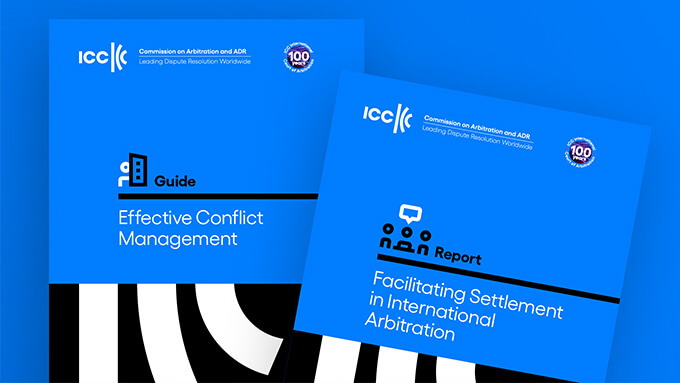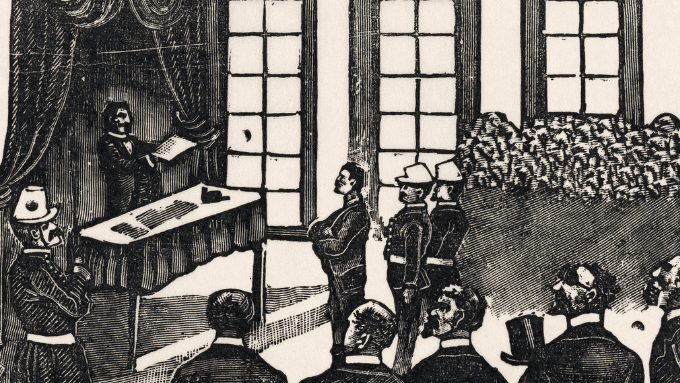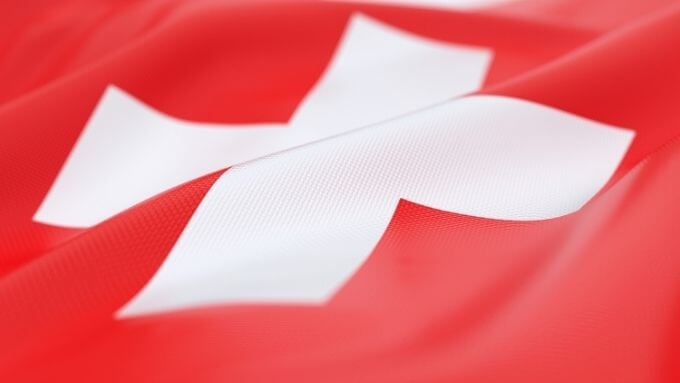Revisions of the Swiss International Arbitration Law
Introduction
The International Arbitration Law of Switzerland is regulated under Chapter 12 of the Private International Law Act of 1987 (“PILA”). On 19 June 2020, the Swiss Parliament approved revisions to the PILA, which is expected to enter into force on 1 January 2021.[i] The purpose of the revisions is to reflect the Swiss Federal Supreme Court’s decisions, and to modernize and clarify the wording of some of its provisions.
The PILA still maintains its well-organized and flexible nature by keeping all of its core provisions, and aims to create a more user-friendly and accessible text to non-Swiss users. This Newsletter Article will address its main revisions.
What Has Changed?
Application
According to the current Article 176 of the PILA, Chapter 12 applies to all arbitrations if the seat of arbitration is Switzerland and, at the time of conclusion of the arbitration agreement, at least one of the parties’ domicile or habitual residence is outside of Switzerland.
Revision to the Article aims to clarify any confusion in deciding the seat or the domicile of the parties, whether to consider the seat/ domicile at the time of conclusion of the arbitration agreement, or at the time of the initiation of the arbitration. This confusion occurred as a result of Swiss case law, which considered the domicile or the seat at the time of the initiation of the arbitration.[ii]
With the revision, it is clarified that when determining the application of the PILA, a party’s seat, domicile, or habitual residence at the time of conclusion of the arbitration agreement, should be taken into account, and any change to such at the initiation of the arbitration should be disregarded.
Form Requirements
Article 178 provides that the arbitration agreement should be made in writing by telegram, telex, telecopier or any other means of communication which could be evidenced by a text.
The revisions made to this Article aim to modernize the means used to enter into arbitration agreements, and will include an e-mail or any other form of modern communication. An important revision to the form of arbitration agreement is that now an arbitration agreement may be included in unilateral acts, such as tender offers, last wills, trusts, constitution deeds for foundations, and articles of associations. Chapter 12 will apply by analogy to arbitration agreements provided under unilateral acts.
Arbitrators
Article 179 of the PILA provides for party autonomy while constituting the arbitral tribunal. In cases where parties cannot reach an agreement, parties may request the assistance of the Swiss state court at the seat of arbitration. New revisions clarify that if the parties cannot agree on the constitution of the arbitral tribunal for longer than 30 days, each party may request such assistance. If the parties have not determined the seat, or if they have agreed that the seat of the arbitral tribunal is in Switzerland, the court first seized will have jurisdiction.
Another revision is made in terms of the number of arbitrators. If the parties do not agree on a number, there will be a three-member arbitral tribunal, which will be constituted by each party appointing one arbitrator and two co-arbitrators appointing the president of the tribunal.
In terms of multi-party arbitrations, if the parties are unable to appoint the arbitrators, the Swiss state court may appoint all of the arbitrators.
The revisions also clarify that an arbitrator has the duty to disclose, without delay, situations, that may create justifiable doubts to his or her impartiality or independence throughout the proceedings. If an arbitrator is challenged, it would not mean that the arbitration is suspended unless the parties or the arbitral tribunal agree otherwise.
Arbitration Procedure
Article 182 maintains the general principle and allows parties to agree on the procedure of the arbitration. The arbitral tribunal still has discretion in deciding the procedure if the parties cannot reach an agreement.
One of the revisions to Article 182 provides that a party should object during the proceedings if there is a due process violation, allowing the arbitral tribunal to rule on such violation. With this revision, it is also aimed to eliminate any procedural objections made as a tactic by the losing party after the award.
Access to Swiss State Courts
Article 185(a) now allows foreign arbitral tribunals and foreign parties to access to Swiss state courts for the taking of evidence and interim measures. This revision aims to eliminate any enforceability problems of interim measures granted by a foreign arbitral tribunal. These requests to the Swiss state courts will be subject to the Swiss Code of Civil Procedure on summary proceedings.
Challenges Against Awards
The Swiss Federal Supreme Court continues to decide on the challenges against arbitral awards. The grounds for setting aside are listed under the PILA; however, the Swiss Supreme Court allows the parties to ask for a correction, interpretation, and amendment and revision of the award, and the current revisions to the PILA now reflect these remedies.
According to Article 189 (a), a party of the award can seek a correction, interpretation, or amendment within 30 days after the award.
A party may also seek revision of the award within 90 days after the grounds for revision presents itself. These grounds are (i) new and material facts, (ii) a criminal offense influencing the award, and (iii) grounds to challenge the arbitrator(s).
One of the clarifications made to the PILA is that an award can be challenged regardless of the amount in the dispute.
A very important revision now allows the parties to file written submissions in English to the Swiss Federal Supreme Court to set aside, or revision of the applications. In the current practice, the parties are only allowed to file submissions in German, French and Italian. This revision will clearly reduce translation costs and ease the work of attorneys. However, it should be noted that only lawyers admitted to the Swiss bar are allowed to file submissions.
Conclusion
New revisions and clarifications made to the PILA will apply as from its entry into force, time of the arbitration agreement, and initiation of the arbitration would not be considered.
[i] For the text of the revisions please see; https://www.admin.ch/opc/fr/federal-gazette/2020/5481.pdf.
[ii] Sebastiano Nessi, ‘New Law Maintains Switzerland at the Forefront of International Arbitration’, Kluwer Arbitration Blog, August 22 2020.
All rights of this article are reserved. This article may not be used, reproduced, copied, published, distributed, or otherwise disseminated without quotation or Erdem & Erdem Law Firm's written consent. Any content created without citing the resource or Erdem & Erdem Law Firm’s written consent is regularly tracked, and legal action will be taken in case of violation.
Other Contents

Emergency arbitration addresses the need for interim protection before the arbitral tribunal is constituted in institutional arbitrations. Arbitral institutions establish short timeframes to ensure parties can obtain interim relief quickly. For example, the International Chamber of Commerce (“ICC”) requires that the emergency...

International arbitration remains the preferred mechanism for resolving complex cross-border disputes. Yet despite its advantages—neutrality, enforceability, flexibility—arbitration is frequently criticized for being too slow, too expensive, and too procedurally heavy. Often, parties proceed through hearings and...

For arbitral awards rendered in international commercial arbitration to produce legal effects in foreign jurisdictions, they must be subjected to proceedings for “recognition” and “enforcement.” This process is governed by the New York Convention as well as by the provisions of the Law on Private International Law...

Arbitrability, the determination of whether a specific subject matter can be resolved through arbitration, constitutes a fundamental aspect of arbitration within the scope of international commercial dispute resolution. This concept draws a delicate balance between party autonomy—a fundamental principle of arbitration...

The recognition, enforcement, and annulment of foreign court and arbitral awards in Türkiye are processes in which public policy emerges as one of the most critical criteria for review, both in theory and in practice. The Court of Cassation decisions determine the direction of case law regarding the scope and...

As is well known, the action for annulment of objection is a special type of lawsuit regulated under Article 67 of the Turkish Execution and Bankruptcy Law No. 2004 (“EBL”). The primary objective of this action is to nullify a debtor’s objection to execution proceedings. Despite its procedural function of facilitating...

On 16 December 2024, the London Court of International Arbitration (“LCIA”) released its third batch of challenge decisions covering the period from 22 July 2017 to 31 December 2022. The LCIA has also issued a detailed commentary that identifies key legal themes and analytical trends, offering practitioners...

The International Chamber of Commerce (“ICC”) has published its report on the dispute resolution statistics for 2023 (“Report”) , shedding light on the evolving landscape of international arbitration...

Syndicated loans undoubtedly hold a significant position among global financing models. In 2023 alone, 3,655 syndicated loans were provided to companies in the US, with their total value reaching USD 2.4 trillion...

Preliminary attachment refers to the temporary seizure of a debtor's assets to secure a creditor's claim. While it serves as a vital instrument for safeguarding the rights of creditors, it is subject to specific and stringent conditions under Turkish law to prevent any potential misuse...

One of the most important reasons for parties to choose arbitration is the opportunity to freely choose their arbitrators. This freedom granted to the parties also distinguishes arbitration from proceedings before state courts, where the parties are deprived of the power to determine the judges who will conduct the...

The 6th Civil Chamber of the Court of Cassation ruled on October 12, 2022, that national courts have jurisdiction over objections to provisional measures in international arbitration disputes...

The declaration of intent to resolve disputes through arbitration is the fundamental constituent element of an arbitration agreement. To speak of a valid arbitration agreement, the parties' intention to arbitrate must emerge in a way that leaves no room for dispute...

In the wake of the evolving dynamics of commercial transactions, the Netherlands Arbitration Institute Foundation (NAI) announced new arbitration rules . 2024 NAI Arbitration Rules are in force as of 1 March 2024 and will be applicable on proceedings filed on or after this date...

With the global shift to online activities, domain names play a crucial role in identifying businesses. It is more common than ever for a domain name to be registered that is confusingly similar to a trademark or service mark...

The ICC Commission on Arbitration and ADR (“Commission”) published a new guide and report with the aim to increase awareness on alternative dispute resolution (“ADR”) mechanisms to prevent disputes and strengthen the relationship between all stakeholders.The Guide on Effective Conflict Management...

Mergers and Acquisitions (“M&A”) are restructuring of companies or assets through various types of financial transactions, such as mergers, acquisitions, purchase of assets, or management acquisitions. This Newsletter article covers M&A disputes being solved before arbitral tribunals.

In the context of arbitration practice, the principle of revision au fond means that the courts can not examine the merits of a dispute when reviewing an arbitral award. This principle is most commonly encountered in set aside and enforcement proceedings. An arbitral award is evidence of the parties’ willingness...

Under Turkish law, parties may agree on the settlement of disputes that have arisen or may arise, regarding the rights that they can freely dispose of, by arbitration. However, disputes which are not subject to the will of parties, such as the disputes relating to in rem rights of immovables, bankruptcy law...

On 4 September 2020, a research project “Does a Right to a Physical Hearing Exist in International Arbitration?” was launched by an International Council for Commercial Arbitration (“ICCA”) taskforce. Due to the Covid-19 pandemic, many arbitration hearings were held online. Many institutional rules...

Dubai International Arbitration Center amended its Arbitration Rules on 25 February 2022. The 2022 Arbitration Rules were published on 2 March 2022 and came into effect on 21 March 2022. The Rules will be applied to arbitrations that are filed after 21 March 2022; unless parties agree otherwise...

In the aftermath of the Achmea decision, controversies on intra-EU arbitrations continue. Most recently, the Paris Court of Appeal has annulled two arbitral awards rendered against Poland. Meanwhile, the Higher Regional Court of Berlin has refused to declare that an Irish investor’s ICSID claim...


Under Turkish law, the legal remedy that can be applied against arbitral awards is an annulment action. Law on International Arbitration No. 4686 (“IAL”) finds its application area in arbitration proceedings where Turkey is the place of arbitration...

It is well known that following a decision of the Court of Justice of the European Union, problems arose related to arbitration of intra-EU disputes, and particularly arbitration under the Energy Charter Treaty...

Arbitration in corporate law contains controversial elements in many respects, especially the issue of arbitrability. Even in legal systems where these disputes are considered to be arbitrable, uncertainties remain on whether an arbitration clause can be included in the articles of...





Arbitration has benifited from a great increase in the use of technology which has directly effected the conduct of proceedings. More particularly, with digitalization, the way that we conduct arbitration proceedings has been changed to reflect the current needs of parties, with an aim of increasing time...
































































